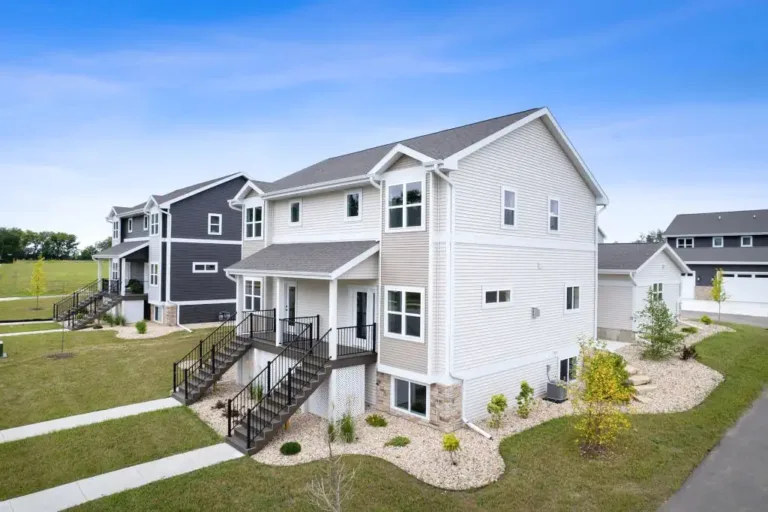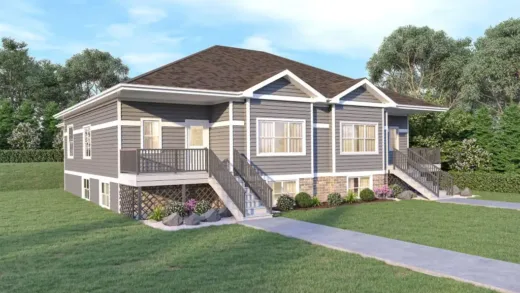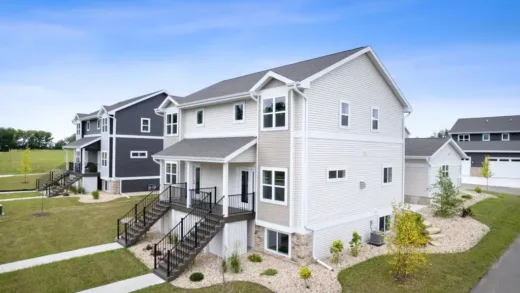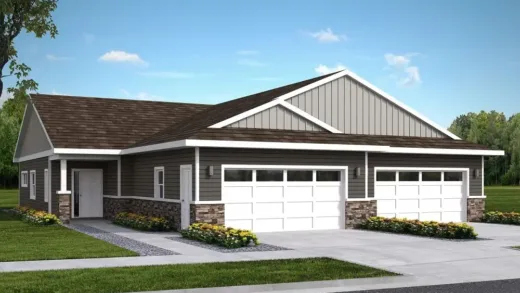Buying a condo can be an exciting and significant investment, especially for first-time homebuyers. In Dane County, WI, where urban amenities meet suburban tranquility, purchasing a condo offers a balanced lifestyle. However, before making this substantial commitment, it’s crucial to consider several factors to ensure your purchase aligns with your lifestyle, financial situation, and long-term goals.
This article explores essential pre-purchase considerations, questions to ask, and a checklist to guide first-time buyers through the process.
Contents
Understanding the Basics of Condominium Ownership
A condominium (condo) is a type of housing where individuals own their units but share ownership of common areas like lobbies, gyms, and exterior grounds. This shared ownership comes with specific responsibilities, rules, and fees that are crucial to understand before purchasing.
Key Considerations Before Purchasing a Condo in Dane County
1. Financial Preparedness
- Budget and Financing: Determine how much you can afford to spend on a condo. Consider the down payment, mortgage rates, closing costs, property taxes, and monthly maintenance fees.
- Mortgage Pre-Approval: Obtain a mortgage pre-approval to understand your borrowing capacity and show sellers that you are a serious buyer.
- Condo Fees: Understand the condo association fees and what they cover. These fees typically cover maintenance of common areas, amenities, and sometimes utilities.
2. Location and Lifestyle
- Neighborhood: Research the neighborhood to ensure it meets your lifestyle needs. Consider proximity to work, schools, public transportation, shopping, and recreational facilities.
- Future Development: Check for any planned developments in the area that might affect property values or your quality of life.
3. Building and Unit Condition
- Age of the Building: Older buildings may have more maintenance issues and higher fees. Ensure the building is well-maintained.
- Unit Condition: Inspect the unit for any signs of wear and tear or potential repairs. Hire a professional inspector if necessary.
4. Condo Association Rules and Regulations
- Bylaws and Covenants: Review the condo association’s bylaws, covenants, and restrictions to ensure they align with your lifestyle and future plans.
- Pet Policies: If you have pets or plan to get one, confirm that the condo allows them and understand any restrictions or fees.
- Rental Policies: If you plan to rent out the unit in the future, check the association’s rules regarding rentals.
5. Amenities and Services
- Available Amenities: Consider the amenities offered by the condo, such as a gym, pool, or parking. Determine if these align with your needs and justify the fees.
- Maintenance Services: Understand the maintenance services provided by the condo association and what responsibilities fall on individual owners.
6. Association’s Financial Health
- Reserve Funds: Assess the condo association’s reserve funds. Adequate reserves indicate that the association is financially healthy and can handle major repairs or emergencies.
- Special Assessments: Inquire about any upcoming special assessments, which are additional charges levied on condo owners for significant repairs or improvements.
7. Resale Value
- Market Trends: Research the local real estate market trends in Dane County. Understand the historical appreciation of property values in the area.
- Comparable Sales: Look at recent sales of similar units in the building or nearby buildings to gauge the market value of the condo.
Essential Questions to Ask Before Buying a Condo
- What are the monthly condo fees, and what do they cover?
- Are there any pending special assessments?
- What is the condo association’s reserve fund balance?
- What are the rules regarding renovations and modifications to the unit?
- How is the condo association managed, and who are the board members?
- Are there any ongoing legal issues involving the condo association?
- What is the policy on renting out units?
- What is the pet policy?
- Are there any upcoming major repairs or renovations planned for the building?
- How many units are owner-occupied versus rented?
- What amenities are available, and are there additional fees for using them?
- What is the procedure for resolving disputes between residents?
- How often are condo fees adjusted, and what is the historical trend?
- What is the policy on noise and other disturbances?
- How is parking managed, and are there additional costs?
Checklist for First-Time Condo Buyers
Financial Considerations
- Determine your budget: Calculate the total cost of purchasing a condo, including the down payment, mortgage, closing costs, taxes, and monthly fees.
- Get pre-approved for a mortgage: Secure a mortgage pre-approval to understand your borrowing capacity and demonstrate your seriousness as a buyer.
- Review condo fees: Understand what the monthly condo fees cover and factor them into your budget.
- Check for special assessments: Inquire about any upcoming special assessments that could impact your finances.
Location and Lifestyle
- Research the neighborhood: Ensure the area meets your lifestyle needs, including proximity to work, schools, transportation, shopping, and recreation.
- Investigate future developments: Check for any planned developments that might affect property values or your quality of life.
Building and Unit Condition
- Inspect the building’s age and maintenance: Older buildings may have higher maintenance costs. Ensure the building is well-maintained.
- Inspect the unit: Look for signs of wear and tear or potential repairs. Consider hiring a professional inspector.
Condo Association Rules and Regulations
- Review bylaws and covenants: Ensure the condo association’s rules align with your lifestyle and future plans.
- Check pet policies: Confirm that the condo allows pets and understand any restrictions or fees.
- Understand rental policies: If you plan to rent out the unit, ensure the association allows it and understand the rules.
Amenities and Services
- Evaluate available amenities: Consider the amenities offered by the condo and whether they align with your needs and justify the fees.
- Understand maintenance services: Know what maintenance services are provided by the condo association and what responsibilities fall on individual owners.
Association’s Financial Health
- Assess reserve funds: Adequate reserves indicate that the association can handle major repairs or emergencies.
- Inquire about special assessments: Understand if there are any upcoming special assessments that could affect your finances.
Resale Value
- Research market trends: Understand the historical appreciation of property values in the area.
- Look at comparable sales: Review recent sales of similar units in the building or nearby buildings to gauge market value.
- Review the condo association’s financial documents: Understand the association’s financial health, including budget, reserve funds, and any outstanding debts.
Conclusion
Purchasing a condominium in Dane County, WI, can be a rewarding investment, offering a blend of urban convenience and suburban charm. However, it’s essential to thoroughly evaluate your financial readiness, understand the condo association’s rules and financial health, and ensure the property aligns with your lifestyle and future plans.
By asking the right questions and following a comprehensive checklist, first-time buyers can navigate the condo buying process with confidence and make an informed decision that will serve them well for years to come.











